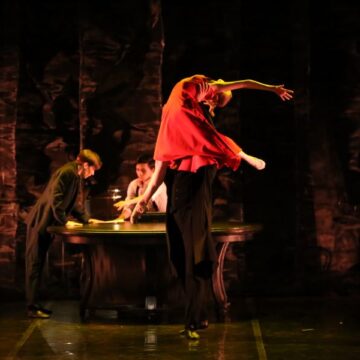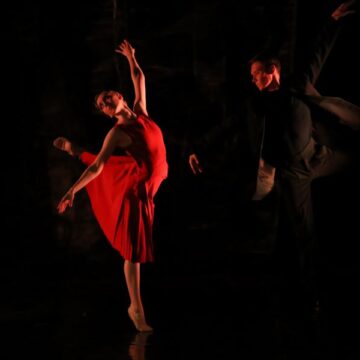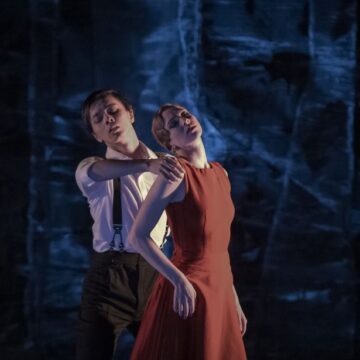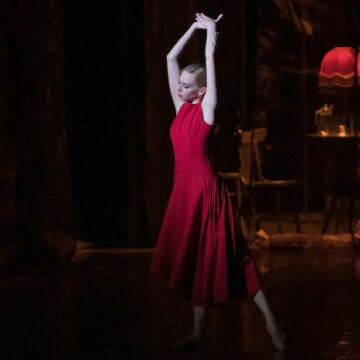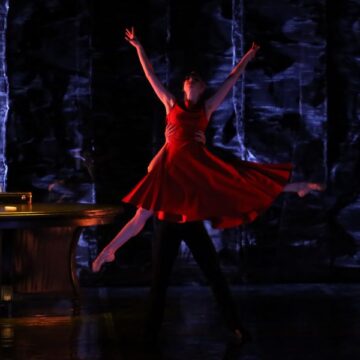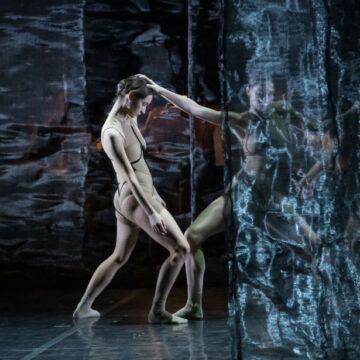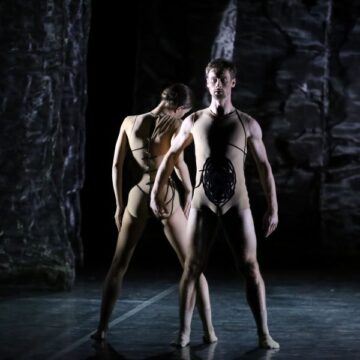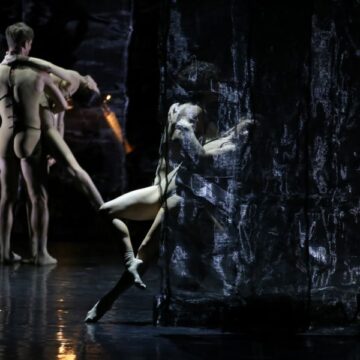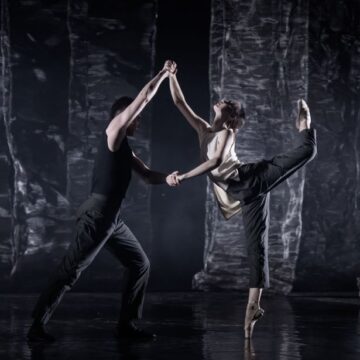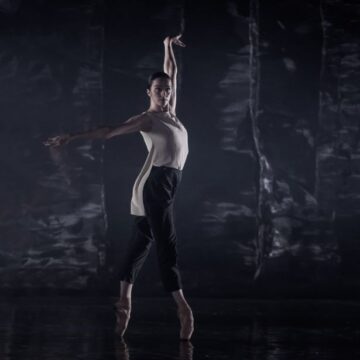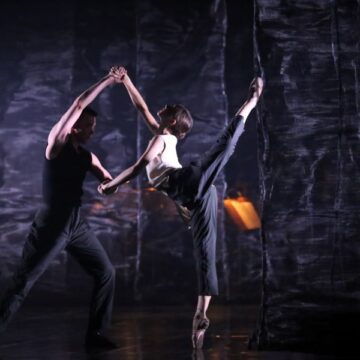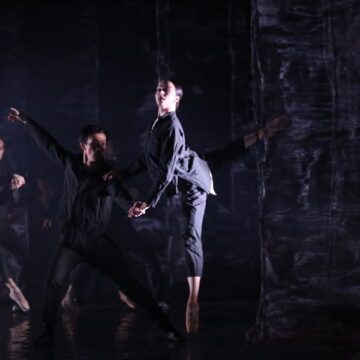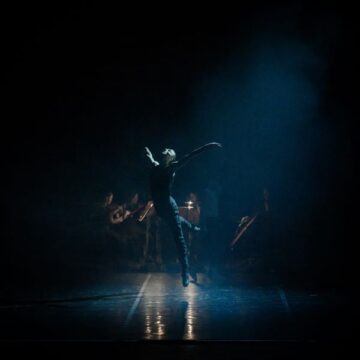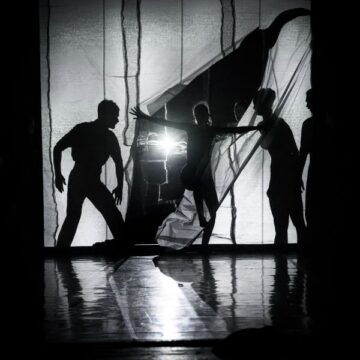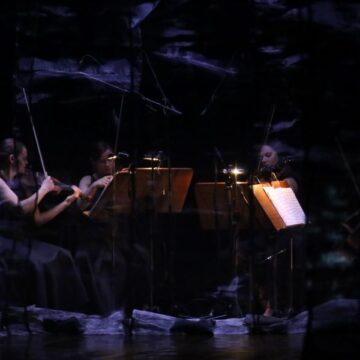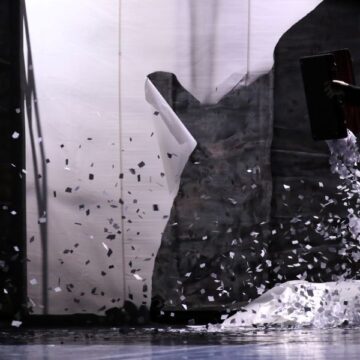Gallery
Terezín Quartet

The ballet program of the Festival will start on the historical stage of the Alexandrinsky Theatre – the company of the Nizhny Novgorod State Academic Opera and Ballet Theatre named after A.S. Pushkin will present the recent premiere of the “Terezín Quartet”: 4 one-act ballets to the music by Erwin Schulhof, Gideon Klein, Pavel Haas, and Hans Krasa. These composers were prisoners of the Theresienstadt concentration camp, where 33,000 people were murdered by the Nazi regime in 1941-1945 and 88,000 were deported to Auschwitz and other death camps. Terezín was liberated by Soviet troops on May 9, 1945.
The project is dominated by the number 4: music written for a string quartet will be performed. Each ballet will have from 4 to 8 people on the stage at a time.
The audience will see the Terezín camp which was considered a light detention camp. Prisoners with a very high level of culture and education were gathered there. There were many internationally renowned scientists, writers, musicians, and politicians among them. There were lecture halls, magazines were published, performance and exhibitions were held in Terezín. But as time passed, the prisoners were sent to camps like Auschwitz.
On the stage there are four stories of the prisoners of Theresienstadt told in the language of the modern ballet staged by four famous Russian choreographers:
- Pavel Haas. String quartet No.3 Oр.15 (1938)
Choreographer Alessandro Caggegi, prizewinner of the International and All-Russian competitions
- Hans Krasa. String quartet ор.2 (1921)
Choreographer Tatiana Baganova, winner of the Golden Mask National Theater Award
- Gideon Klein. Partita for the strings (1944)
Choreographer Maxim Petrov, winner of the Golden Mask National Theater Award
- Erwin Schulhoff. Five pieces for a string quartet (1923)
Choreographer Alexander Sergeev, winner of the Golden Mask National Theater Award
The author of the idea, Musical Director is Alexey Trifonov, artistic director of Nizhny Novgorod Opera and Ballet Theater.
Erwin Schulhof, Gideon Klein, Hans Krasa and Pavel Haas are well-known Czech composers who ended up in the Theresienstadt concentration camp due to a set of circumstances. In spite of everything, they continued to create and write music even there.
Erwin Schulhof was one of the most popular Czech composers of his time. In 1932, he founded a jazz quartet and worked on the idea of a jazz school. As life became increasingly difficult for Jews and adherents of “leftist” beliefs, Erwin Schulhof became increasingly imbued with the ideas of communism. In 1932 he wrote the music for the Communist Manifesto. In 1941 he received Soviet citizenship and waited for visas for himself, his wife and son. Confident of success, he sent his works to the USSR in advance, which saved the composer’s creative legacy from destruction. On June 23, 1941, the day after Hitler attacked the Soviet Union, Schulhof was thrown into prison. In winter he was deported to the Wülzburg concentration camp in Bavaria, where he died in 1942.
Gideon Klein was born in 1919 in Přerov in Moravia. In 1941 he was deported to Theresienstadt. Klein continued giving recitals as a pianist and performed chamber music with his colleagues from Prague. The musical works written in Terezin included chamber string music, choral works, madrigals with lyrics by Hölderlin and Villon, a piano sonata, and music for the theater. In 1944 Gideon Klein was sent to Auschwitz and from there to Fürstengrube, a coal mining labor camp near Katowice in Poland. He passed away on January 27, 1945 at the age of 26.
Pavel Haas was born in 1899 in Brno. He began composing music at the age of 14. In 1920 – 1922 he studied at the conservatory under outstanding composer Leoš Janáček. On April 2, 1938, Haas’s opera The Charlatan premiered in Brno. In 1941 Haas was sent to Theresienstadt, where he continued to compose musical works. The first work composed in the concentration camp was the choral composition “Do Not Mourn” based on Jewish texts by David Shimoni. This was followed by “Etude for the Strings” (1943) and “Four Songs of Chinese Poetry” (1944). Both works were performed by Terezín prisoners and often sounded in post-war musical programs. On October 16, 1944, Paul Haas was deported to Auschwitz.
Hans Krasa was born in 1899 in Prague. He studied at the German Academy of Music. He admired the works of Igor Stravinsky. Several of his works were published in Vienna and Paris. He worked as a vocal teacher at the New German Opera. In the 1920s he performed in the USA and France. He composed several song cycles for the orchestra and piano, a symphony for a small orchestra, a string quartet, “The Land of the Lord” cantata, “Betrothal in a Dream” opera based on “Uncle’s Dream”, a novel by Dostoevsky, a chamber work for harpsichord and seven instruments. After several years spent in Terezin, he was sent to Auschwitz on October 16, 1944.
“We were by no means sitting, weeping and wailing, on the banks of the rivers of Babylon, our will to culture was adequate to our will to life…” – Viktor Ullmann (1898-1944), Austrian and Czech composer deported to Theresienstadt in 1942.
Mass media about the performance:
Four composers, four directors – past and present. These are not composers’ stories told in the language of modern ballet. The choreographers were given complete creative freedom, the opportunity to move in all directions, without restricting themselves in any way.
Anna Kolomoets, The Muzykalnaya Zhizn magazine
The dancers of the Nizhny Novgorod Theater successfully and brightly coped with all kinds of tasks… That’s what a given enthusiasm and reciprocal motivation in the name of learning new things means.
Maya Krylova, music and ballet journalist, expert of the Golden Mask Festival
